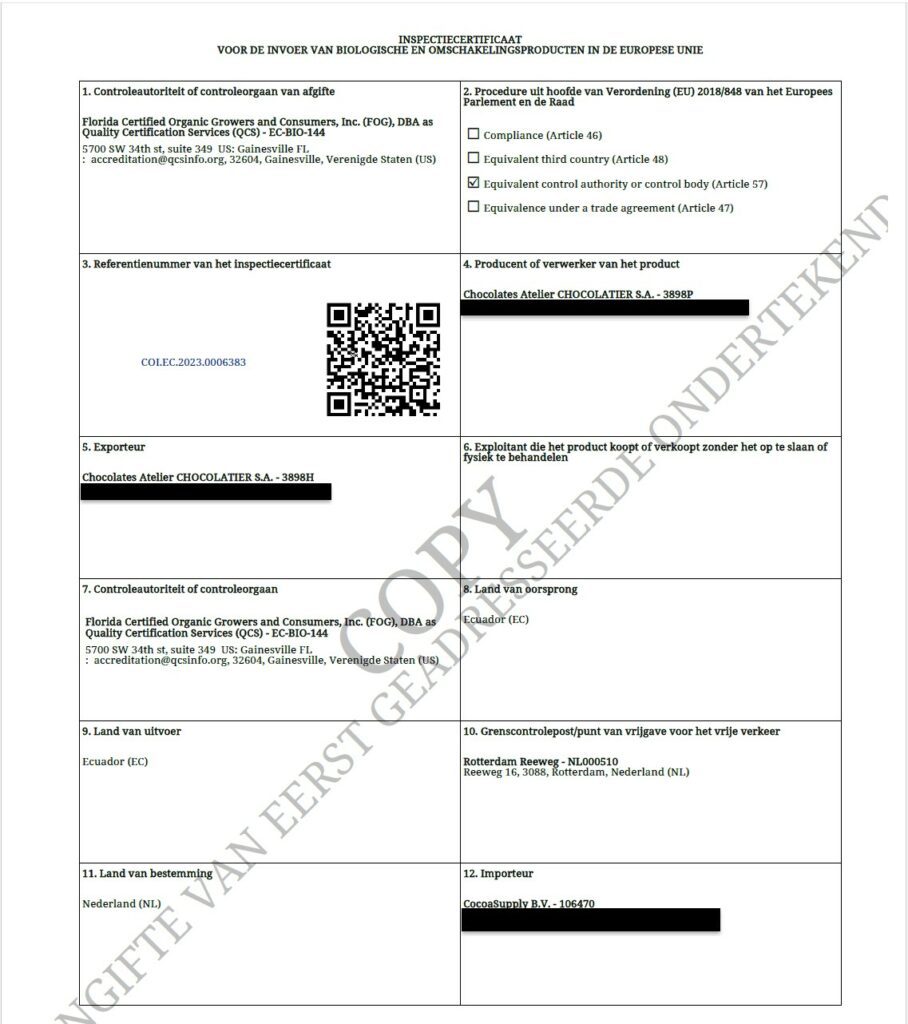COI ( Certification of Inspection)for Organic Food Products
COI and Traces, what is their relation? When it comes to organic products, certification of inspection is an important process that verifies and ensures that products labeled as “organic” meet the required organic standards. Organic certification involves thorough inspections of farms, production facilities, and processes to confirm that the products have been produced in accordance with specific organic farming and processing practices. Different countries and regions may have their own organic certification programs or recognized certifying bodies. In the Netherlands we have only one certifying body; SKAL. Kolibri Logistiek holds a SKAL certificate for the storing, packaging and distributing of organic food products.
Organic certification typically involves:
- On-Site Inspection: An accredited certifying body conducts inspections of the farm or production facility to assess compliance with organic standards. This includes examining farming practices, handling procedures, and record-keeping.
- Documentation Review: The certifying body reviews documentation related to production practices, inputs used, and traceability of organic products.
- Auditing: Audits may be performed regularly to ensure ongoing compliance with organic standards.
- Labeling and Traceability: Certified organic products are often labeled with an organic certification logo or label. This label assures consumers that the product has met specific organic requirements.

An example of a COI
TRACES (Trade Control and Expert System):
Coi and TRACES are both traceable documents. Traces is an electronic system developed by the European Union (EU) to monitor the movement of animals, plants, and their products within the EU and for imports into the EU. While TRACES primarily focuses on animal health and food safety, it can also be used for tracking organic products to ensure their compliance with organic regulations.
TRACES enables:
- Electronic Documentation: TRACES allows for the creation and exchange of electronic documentation related to the movement of goods, including certificates of inspection or phytosanitary certificates.
- Traceability: The system helps trace the movement of goods, ensuring transparency and accountability throughout the supply chain.
- Risk Management: TRACES aids in managing risks related to the import and export of goods, including potential health and safety risks.

An example of a registration in Traces.
In the context of organic products, both COI and TRACES might be used to facilitate the exchange of information and documentation related to the certification of inspection for organic products when they are being imported or exported. This can help ensure that the organic products meet the required standards and are properly documented throughout their journey.
Please note that specific procedures and requirements may vary by country and region, but the combination of organic certification and systems like TRACES contributes to the integrity and traceability of organic products in the global marketplace.

